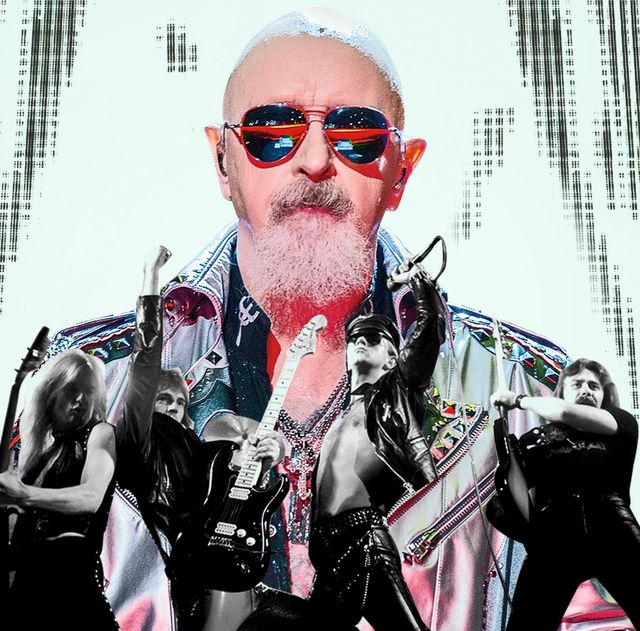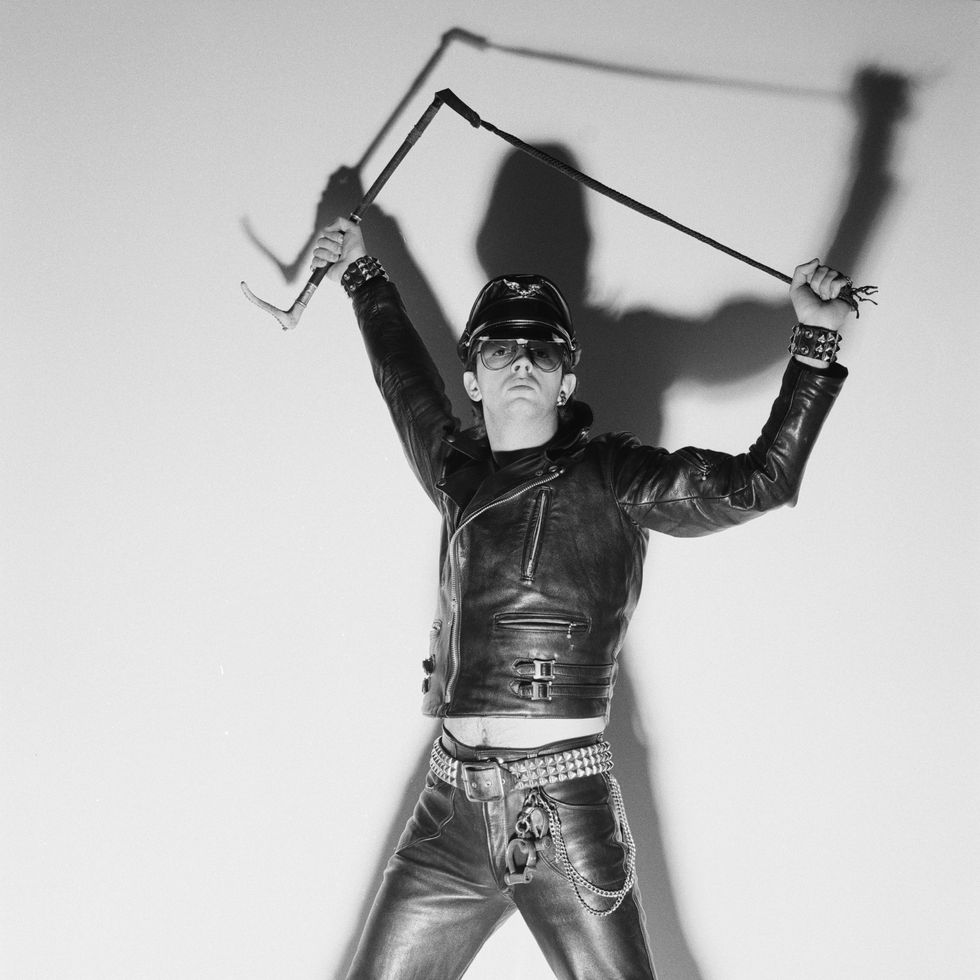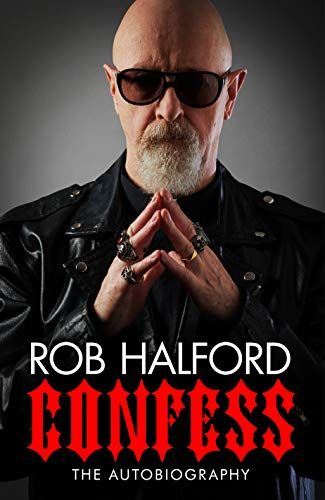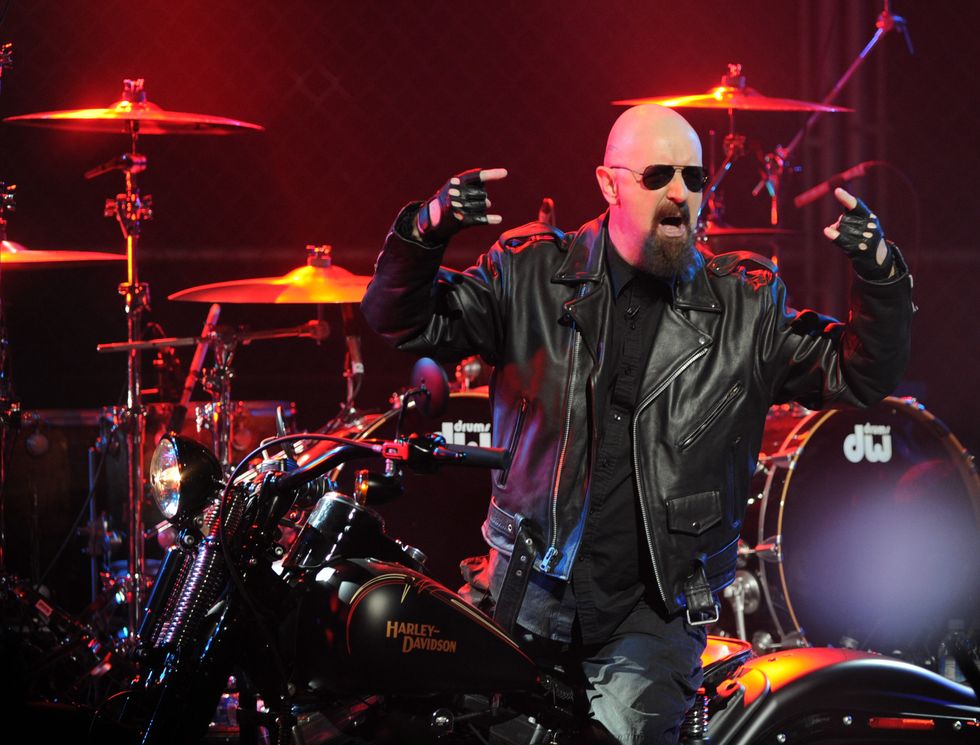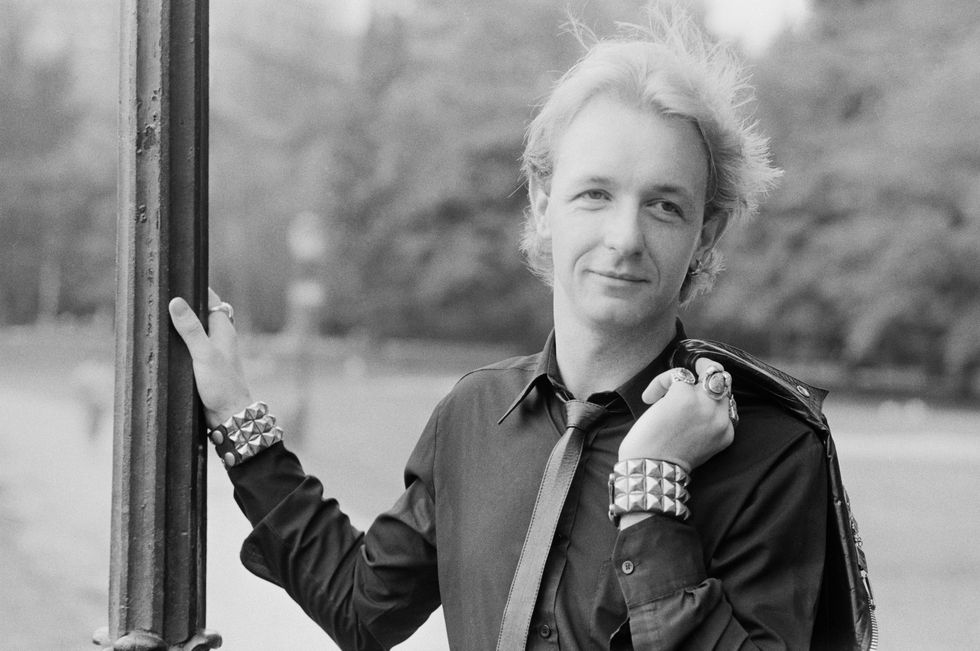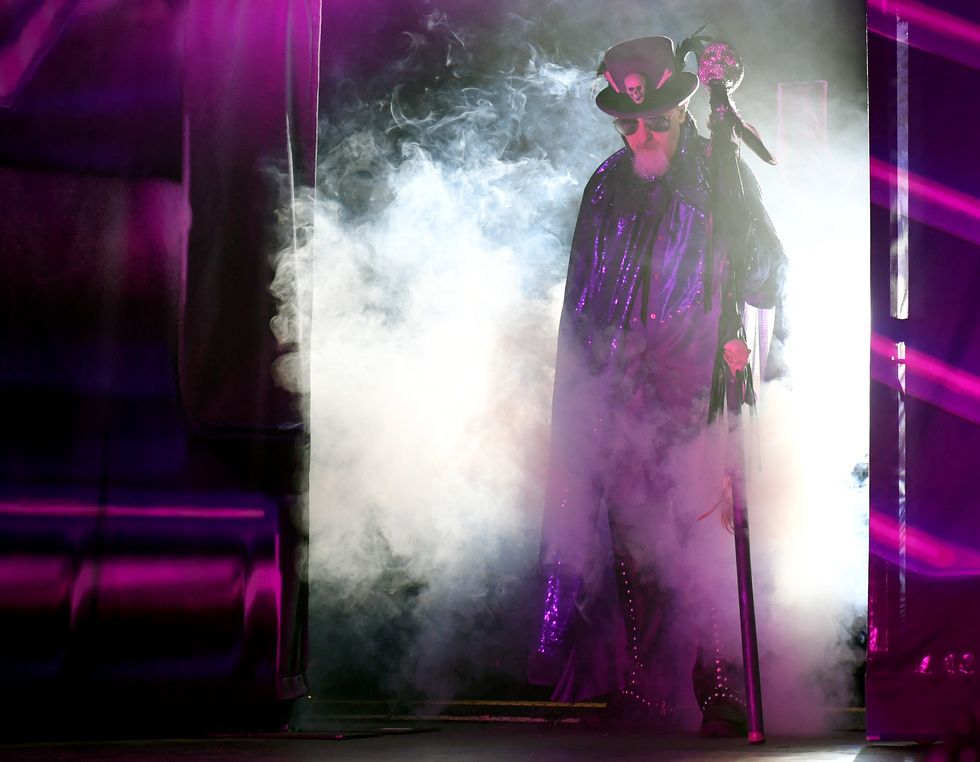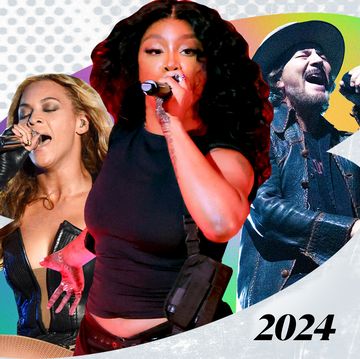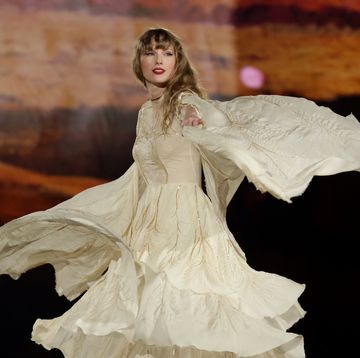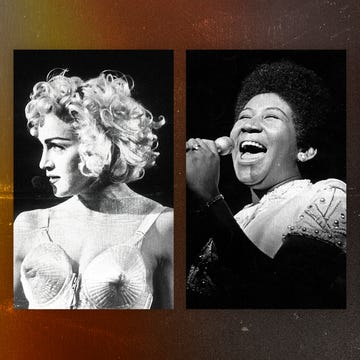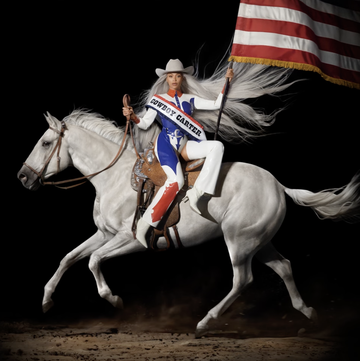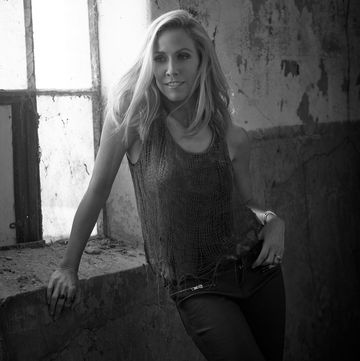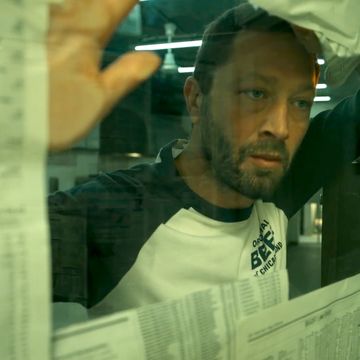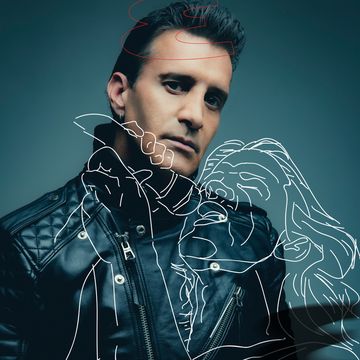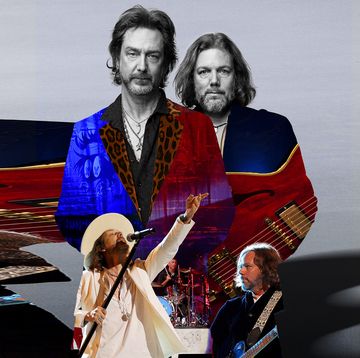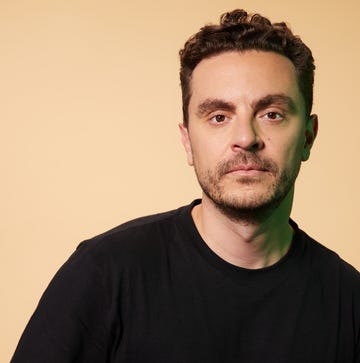Before he became a queer icon and global superstar, Rob Halford was just another working class theater kid knocking around Walsall, UK, a little town nestled in the industrial West Midlands whose proximity to Birmingham would end up charting the course of his life. In the 1970s, that smoke-streaked, hardscrabble corner of England brought heavy metal into the world, and as the vocalist for Judas Priest, Halford would soon find himself on the vanguard of a bone-rattling new sound that would launch him and his band into the spotlight, and change rock music forever. For decades, it would also force him to live a painful, lonesome lie.
But, as he approaches his 70th birthday, Halford has decided that it’s time to come clean. His deliciously readable new memoir, Confess, is a warts-and-all rock’n’roll confessional in league with Led Zeppelin’s Hammer of the Gods or Lemmy Kilmister’s White Line Fever, with a rather big twist. Unlike his famous peers, Halford was navigating heavy metal’s debaucherous, drug-fueled 1980s heyday and the heights of his own band’s stratospheric popularity as a closeted gay man who was petrified about the potential consequences of revealing his true self. “What if it got out that I was gay, fans didn’t want anything to do with a band fronted by a queer, and it killed Judas Priest stone dead?” he asked himself, over and over.
Those fears never came to pass. When Halford finally came out in 1998, he did it live on MTV, without apology, during an interview to promote his industrial-tinged side project, 2wo. He recounts the experience in the book, writing, “I had liberated myself from self-imprisonment, and nothing could hurt me again.” He soon had to open a new office in Arizona to handle all of the grateful letters from queer fans thanking him for giving them the strength to live their own truths.
Now, after living in the public’s electric eye for most of his life, heavy metal’s most famous tattooed leather daddy (who’s actually been as good as hitched for 30 years and describes his own sex life as “vanilla”) proudly refers to himself as “the stately homo of heavy metal.” He has no problem getting personal in his memoir or on the phone, whether he’s dishing about his fondness for military men or gushing about meeting the Queen in his winsome Brummie burr. Alongside behind-the-scenes stories about recording the band’s classic albums, rockstar shenanigans, and colorful tour exploits, Halford is candid about surviving sexual abuse, as well as his struggles with depression, substance abuse, sobriety, and the suicide of one of his former partners—and how his own suicide attempt in 1986 led him to the rehab program that saved his life.
Co-written by Ian Gittins, with whom Halford sat for over 15 hours of interviews, Confess is a raw, nakedly honest self-portrait of an icon. And, it’s also the story of a regular lad from Walsall whose day job just happens to include dressing to the nines in black leather and riding a Harley out onstage in front of thousands of fans every night (or at least, it did pre-Covid-19). This Metal God contains multitudes. Whether he’s screaming for vengeance in front of a wall of amplifiers or posting endearingly corny cat photos on Instagram, Halford will always be a legend—but in this book, and in the following interview, he takes great care to remind us that he’s still human.
Esquire: This memoir is very personal, and you don’t hold back at all, even when it comes to your sex life. I wasn’t expecting to learn quite so much about glory holes, but hey, why not!
Rob Halford: I didn’t know whether I should go there! The whole thing about cruising, it still goes on; for some people, it’s an exciting thrill and it doesn’t really carry the sadness of the glory hole, which was what people like me did then. For those of us that were in the closet, it was just an opportunity and you took it. But, you know, the glory holes and the foot-tapping, there is some humor there; you've got to try and balance it out. And I think that's what we've done with the book. We've taken you on the human emotional roller coaster ride.
Right, there’s a vulnerability there that challenges that stereotypical view of rockstars in the 1980s. Do you think your fans back then saw you as this untouchable Metal God character, or recognized you as more of a regular bloke?
I think the world has changed dramatically since the internet and reality shows and Facebook, Instagram, and Tik Tok; even though a lot of that is frivolous, you're getting a personal look into everyone's details, including the dirty laundry. But that wasn't the case in the ‘80s, particularly when Priest was roaring; that was the decade of decadence, there's no doubt about that. I remember most of it vividly. That was the assumption, that Rob was getting his rocks off left, right and center. In fact, I wasn't. I was in my hotel room having a cup of tea watching the television! That's the glamour for you right there!
Your book places that alternate reality front and center, and also makes it clear that queer people have been around forever—and in fact, have made some of the most important contributions to the whole genre.
There's always been queer and trans bands in all kinds of music. We've always been here, haven’t we? But for the most part, we had to hide. Some of us still do today, but there have been a lot of us who have broken through the closet and live our lives openly. This is a book for all of my fans and for anyone that is from my sexuality. I would like to feel that there is going to be identifying episodes and chapters where some of my fans will say, ‘Yeah, that's me, that’s happened to me, I know how that feels because I felt the same way.’
Right, letting people know that they’re not alone.
Yes, exactly. Don't get me started on that because I’ll go all Oprah; we’re born alone and we die alone and life goes in between the start points. Today is Suicide Prevention Day, and we've lost a lot of people because they couldn’t take life anymore, and a portion of them have been lost through the issue of sexuality, or the rejection that they received because of their sexuality. I would like to feel that [my message] has some kind of value to the reader. You're not alone.
Those themes—that we’re in this together, we’re one big metal family—have been so integral to so much of your work that it makes sense that they’re also present here. It’s all very “us against the world.”
I daresay that's been a bonus for me as a metalhead and as a musician trying to break through, and going through the struggle and the rejection from the very beginnings of heavy metal music. Even today, heavy metal is like the black sheep of the family. That's probably part of my makeup; my metal world is obviously woven its way into a lot of aspects of my life. This book’s about surviving as well, about never giving in and never giving up, and that should be very, very pertinent to some areas of metal.
You've been there since the very beginning and have witnessed the scene becoming more inclusive and diverse. What do you think are the biggest problems that the metal community still needs to address?
There's still some levels of intolerance and bigotry and prejudice. That's just the human foible that we have; I don't know what makes us that way. And I still see it all the time. I get bullied occasionally on my social media. But how you choose to deal with that, or how you choose to ignore it is entirely up to you. For the most part, I always ignore negative energy. I prefer big dick energy.
Ha! In the book, you talk a lot about being this typical working class West Midlands bloke who grew up in the shadow of the factory, who generally just does your best to get on with it even after you’ve achieved rock stardom. How did growing up like that impact the way you approached masculinity and manhood?
You know those Norman Rockwell paintings, with the dad and the son throwing the ball around? I never did that with my dad. My dad was a very loving, generous man in his own way. But he never really ever showed his emotions, because that's the way it was instilled into him as a child. Sins of the father, like father like son. It's amazing how family units pass this thing on, you know, it's a cycle. I'm not saying that my dad did a bad job, he was fantastic as a father to me, but as far as some of these life-through-rosy-glasses elements that we see sometimes portrayed as father figures, that wasn't the case. It was very mature, ‘get on with it.’
Did you ever think about having kids of your own?
I still do now, I still feel that that's a part of my life that's incomplete. And I'm 69 now, so I don't think it's going to happen and yet some of my friends say, ‘Go on, you can do it, look at Elton [John].’ But I think I'd be a great dad. I mean, I'm a great uncle to my nieces and nephews; they’re kinda like my kids. I think I'd be good at changing diapers. You know, when you live this long, there's very, very few things that shock you, including a dirty diaper.
Living through heavy metal in the ‘80s, you must’ve dealt with much bigger messes.
Yeah, and you can imagine what my baby would look like, in leather diapers with studs on!
